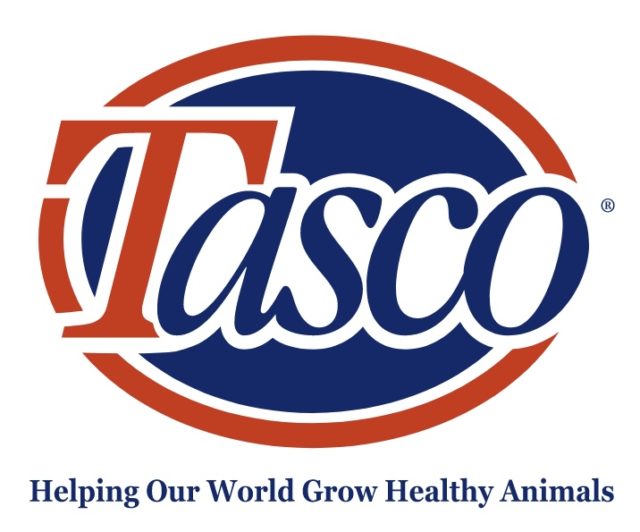Pooling requirements are a main point of disagreement in comments submitted on a proposed California Federal Milk Marketing Order (FMMO) likely headed for a vote later this year.
The comment period on a USDA “recommended decision” to create a California FMMO closed on May 15. About 30 comments received by that date have been posted on a federal regulatory tracking website.
The disagreement over milk pooling requirements – termed either inclusive or mandatory versus voluntary or performance-based – largely fell along “partisan” lines: producer groups for the former; processor groups for the latter.
Producer groups seek stricter pooling rules
In comments submitted jointly to USDA, the three dairy cooperatives filing the initial petition for a California FMMO – California Dairies Inc. (CDI), Dairy Farmers of America (DFA) and Land O’Lakes – said failure to include mandatory pooling would essentially defeat the FMMO’s purpose. Citing USDA economic analysis, the co-op comments said approximately 40 percent of normally pooled milk (51 percent of Class II, 31 percent of Class III and 50 percent of Class IV milk) on the proposed California FMMO would be de-pooled because of class–to-uniform price relationships.
DFA’s Elvin Hollon said the California FMMO creates unique circumstances related to Class III/IV milk depooling compared to other FMMOs, mandating inclusive pooling to limit price instability.
The co-ops argued such pooling standards implemented in a unique California FMMO area would not “establish and maintain” orderly marketing conditions, but instead lead to intolerably inequitable marketing disorder. If "inclusive pooling" Is not adopted in a final decision, re-pooling provisions should be tightened to restrict wide pooling fluctuations.
Annie AcMoody, Western United Dairymen, echoed those sentiments. She said voluntary pooling provisions outlined in USDA’s proposal would result in large volumes of Class III (used in cheese and whey production) and Class IV (used in butter and nonfat dry milk production) being depooled each month, adding instability to producer uniform milk prices.
Others expressing pooling concerns were Joe Augusto, president, California Dairy Campaign (CDC) and Kevin Abernathy, general manager of California’s Milk Producers Council.
Processors approve USDA pooling plan
Nearly all dairy processor groups submitting comments supported USDA’s decision calling for voluntary pooling.
Scott Hofferber, chief financial officer with Farmdale Creamery Inc., San Bernardino, California, agreed with USDA’s pooling provision as proposed. With economic analysis forecasting higher milk prices, flexible pooling provided a “safety valve” for dairy processors facing tighter margins, especially during oversupply conditions.
As an extended shelf-life (ELS) fluid milk bottler, Michael Suever, senior vice president of HP Hood, said implementing mandatory or inclusive pooling would make it more difficult to secure Class I raw milk supplies for its California plant.
Mac Moore, director of business development with Cacique, Inc., a cheese and dairy product manufacturer, supported voluntary pooling for Class II, III and Class IV milk.
Leonard Vandenburg, CEO of Pacific Gold Milk Products, described as a small/medium cheese manufacturer in California’s Central Valley, said implementation of a California FMMO “will result in lower demand and more supply of milk, resulting in an imbalanced market and both producers and cheese manufacturers will lose.” If implemented, he supported voluntary pooling, saying FMMO Class III pricing formulas using the higher whey factors did not account for higher cheese manufacturing costs in California. “At the end of the day, de-pooling may save California’s cheese industry, where a free market will set the price,” he said.
National All-Jersey Inc. noted all other FMMOs only require mandatory pooling for Class I (fluid) milk, and recommended the California FMMO operate along the same guidelines. Select Milk Producers Inc., the nation’s sixth-largest dairy co-op, supported all aspects of the USDA proposal, including performance-based pooling regulations similar to other FMMOs.
USDA data questioned
While supporting voluntary or performance-based pooling, several organizations questioned USDA's economic analysis, charging erroneous information painted an overly optimistic view of its impact on producer prices, which might mislead producers into voting for the FMMO.
William Schiek, representing the Dairy Institute of California (DIC), questioned multiple aspects of the USDA’s economic analysis. DIC also disputed estimates regarding the levels of milk de-pooling in the USDA analysis, suggesting de-pooling levels are not likely to change from levels seen under the current California state milk marketing order.
Rob Blaufuss, senior manager of dairy risk management and economics with Dean Foods, said USDA’s estimates failed to reflect factors used by processors to make pooling decisions. He urged USDA to make adjustments in its economic modeling prior to issuing a final decision.
Impact on cheese production, price analysis disputed
NAJ also called into question USDA’s economic analysis suggesting less cheese production and higher state and U.S. cheese prices will result from a California FMMO. While it is true less “pooled” milk will go into cheese vats, NAJ general manager Erick Metzger said California cheese manufacturers will have the opportunity to de-pool milk procured directly from producers, and to obtain pooled milk from cooperative handlers at below the Class III price. As a result, California cheese production could be expected to hold steady under an FMMO.
Those sentiments were shared by James De Jong, dairy policy and economic analyst with Hilmar Cheese, who said Hilmar’s experience showed the USDA's analysis was flawed.
Other comments
From the geographically opposite corner of the U.S., the Maine Dairy Industry Association supported creation of a California FMMO, but warned of the potential for: 1) increased milk production nationally; 2) decreased Class I utilization nationally and in the Northeast FMMO; 3) reduced producer prices and revenue in the Northeast FMMO; and 4) the uncertain consequences of depooling. To mitigate those potential adverse impacts on the Northeast, MDIA recommended the California FMMO must incorporate and enforce California dairy cooperative “base plans” to limit milk production growth, with flexibility to adjust base amounts to reflect changing market circumstances.
The Kroger Co. supported the proposed California FMMO, with the exception of provisions dealing with Class I pricing, fortification allowances and transportation assistance to move milk long distances.
In its comments, CDI, DFA and Land O’Lakes, asked USDA to reconsider and adopt Class I transportation credits – omitted in the recommended decision – and funded by an assessment on processors.
Several processor groups continued to express opinions that a California FMMO was not needed. DIC want so far as to say the California FMMO was unjustified and ignored decades of U.S. Supreme Court precedent.
While taking no position on the California FMMO specifically, the International Dairy Foods Association (IDFA) continued its longstanding opposition to federal orders in general. In comments submitted by legal counsel Steven J. Rosenbaum, IDFA questioned whether USDA had adequately proved “disorderly” marketing conditions existed in California.
In addition to endorsing DIC comments regarding pooling, Leprino Foods Company said USDA used outdated cost data in its economic analysis. And, by establishing manufacturing or “make” allowances aligned with other FMMOs, USDA failed to recognize higher processor costs in California.
Comments filed by Wendy Yoviene, representing Dean Foods Company, said USDA underestimated a processor’s time and costs related to paperwork burdens, especially with separate FMMO and state quota program recording requirements.
CDFA moving forward on quota oversight
Also drawing comments from producer groups was USDA’s determination that an existing California quota program should remain entirely within the jurisdiction of the California Department of Food and Agriculture (CDFA).
CDFA Secretary Karen Ross submitted comments informing USDA the state agency was “ready and willing” to establish a stand-alone program, including administering authorized deductions from milk payments due to producers. However, she said legislation is needed to remove any statutory ambiguity that may exist in California’s statutes to ensure the proper authority lies with CDFA.
According to Ross, that legislation would be developed through the California Producer Review Board and would require approval in a separate producer referendum. CDFA’s goal is that all of this should happen prior to a producer referendum on the California FMMO.
In comments to USDA, WUD’s AcMoody urged delay of the California FMMO producer referendum until CDFA provides details on how it will separately manage the quota program. The California Producer-Handlers Association (CPHA) agreed, seeking an extension on any USDA comment period until CDFA provide final details.
Three Producer Review Board meetings have been scheduled: May 30, June 15 and June 29, all in Modesto, California.
Previously, Ross named members of the Producer Review Board charged with creating the stand-alone quota program. Newly appointed members are: Chuck Ahlem, Jarrid Bordessa, Arie De Jong, Ted DeGroot, Fred Douma, Joey Fernandes, Scott Magneson, John Moons and Mike Gallo. They join current board members: Wes Bylsma, Craig Gordon, Rodney Kamper, Ron Koetsier, George te Velde and Case Van Steyn. Appointed as alternate members were Arlin Van Groningen and Tony Nunes III.
What’s next?
The next USDA deadline is June 20, when a comment period regarding the California FMMO ballot and voting procedures ends.
Following a review of comments on its recommended decision, USDA will publish a “final decision” and, if USDA continues to recommend a California FMMO, will conduct a referendum among affected Californian dairy producers.
According to USDA estimates, about 1,443 producers are eligible to vote, either through individual or bloc voting. Two-thirds of California dairy producers, or those producing two-thirds of the state’s milk, must approve the FMMO for it to be implemented. ![]()

-
Dave Natzke
- Editor
- Progressive Dairyman
- Email Dave Natzke






